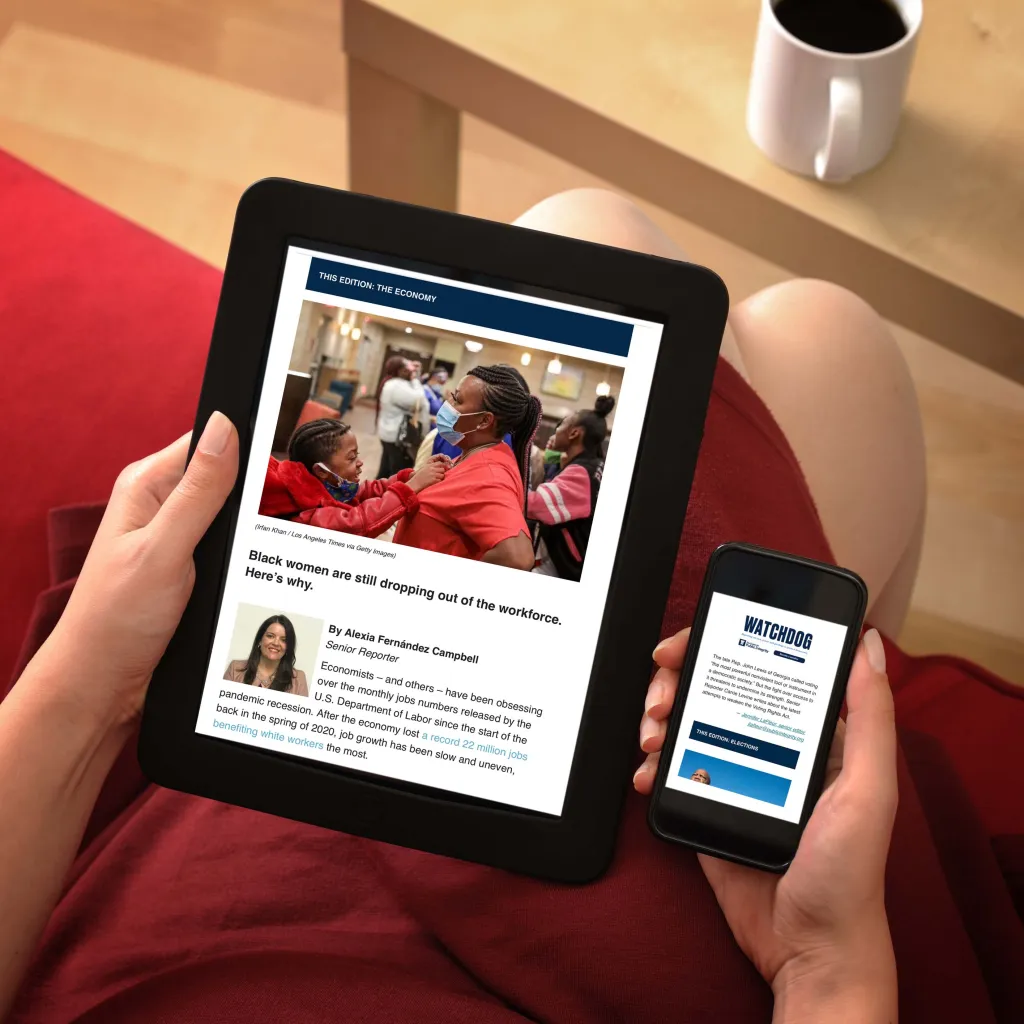The District of Columbia has some of the most inclusive voter laws in the country. Voters can register in person, by mail or online. Voters can cast a ballot in person, by mail or at a drop box. Additionally, it stands with only Maine and Vermont as a place where residents convicted of felonies never lose their right to vote, even while incarcerated.
However, the 2020 election brought renewed attention to one of the biggest issues facing the district: a lack of representation in Congress.
Despite paying federal taxes and having a population size larger than Wyoming and Vermont, the District of Columbia’s long quest for statehood was rebuffed once again despite brief talk by a Democratic majority in Congress of advancing it. D.C. elects a single delegate to the U.S. House (a position long held by Congresswoman Eleanor Holmes Norton) who is able to vote in committee and introduce legislation, but does not have the power to vote on any bills.
“The continuation of taxation without representation in the nation’s capital not only violates a main pillar of the revolution that sent our Founders to war,” Norton wrote in a press release from Independence Day of this year. “Allowing the nearly 700,000 Americans who live in the nation’s capital to continue to live as second-class citizens betrays the spirit of July 4th itself. On no U.S. holiday is D.C.’s inequality more deeply felt or more at war with the nation’s democratic values than on July 4th.”
Unequal access
Washington, D.C., has the best voter registration rate in the nation, with nearly 96% of eligible voters registered. Voter turnout was about 64% in the 2020 election.
But the turnout rate by ward varied as much as 23% in the 2020 election, according to DC Kids Count, an organization that tracks data on various topics in the district. Majority Black wards that also had some of the highest levels of poverty and housing instability had lower voter turnout than more affluent wards with a higher concentration of white voters.

About this series
This project looks at the state of voting access, voting rights and inequities in political representation in all 50 states and Washington, D.C.
In 2020, D.C. had a homelessness rate of 90.4 for every 10,000 people. D.C.’s rate was higher than any state and nearly double New York’s rate of 46.9.
Unhoused voters are disadvantaged in a variety of ways. It is harder to register to vote without a permanent address. The district allows an occupancy statement from a shelter to count for voter registration, but the statement must be dated no earlier than 90 days before an election. Unhoused voters might not be able to receive a mail-in or absentee ballot, and may experience trouble with transportation getting to the polls.
Taxation without representation
D.C.’s nearly 700,000 residents are able to vote in presidential elections, a right granted in 1960 with the adoption of the 23rd Amendment to the Constitution, but have no voting representation in a Congress that controls or has veto power over many decisions related to the district that would be decided by local control in states.
Norton introduced HR51, also known as the Washington, D.C. Admission Act, in 2019 and reintroduced it last year. The Act would admit certain parts of Washington D.C. into the new state of Washington, Douglass Commonwealth. It passed in the House of Representatives in June 2020 and April 2021. It went nowhere in the U.S. Senate, where Democrats with 50 members and a tie-breaking vote from Vice President Kamala Harris maintain a razor-thin majority but are clinging to a filibuster provision that would require 60 votes for passage.
If D.C. became a state, it would add one voting member to the House of Representatives and two to the U.S. Senate.
One of the biggest reasons Norton claims D.C. residents deserve statehood is because of how much money the district pays in federal taxes. Residents of the district pay the highest percentage of their income and the most federal taxes per capita, according to a study by MoneyRates.
Adults in D.C. pay an average of $10,517 in federal income taxes. Adults in Mississippi, the state with the lowest average federal income taxes, pay an average of $2,883.
Opponents of D.C.’s statehood, predominantly Republican leaders who fear its admission could hand control of the U.S. Senate to Democrats for the foreseeable future, argue that it should remain as it is or be annexed by Virginia or Maryland.
The attorneys general of 22 states signed a letter to President Biden after the House passed the Washington Admission Act stating: “Providing statehood would create a state that would not be one among equals, but rather, a super-state that would have primacy over all others.”
The attorneys general argued that the district’s special non-voting status was not an accident and the Founding Fathers wanted an “exclusive federal district” to serve as the seat of government. If the bill is enacted, Republican leaders have pledged to fight D.C. statehood in court.
The district held a referendum in 2016 in which about 78% of voters supported statehood.


